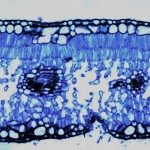Présentation
The classical biotype of Vibrio cholerae O1 was responsible for the first six cholera pandemics, but is relatively unknown, with only 20 genome sequences (50% of which come from the same geographic area) for this biotype available from public databases. This probably reflects the replacement of this biotype by the El Tor biotype in the 7th pandemic, as the classical biotype has not been isolated in recent decades.
We will carry out a large-scale comparative genomic and phylogeographic analysis ofthis rare pathogen, to improve our understanding of its genome evolution, spread, and extinction. We will analyze 110 classical biotype isolates from our collection (isolated between 1926 and 1987) and 100-150 isolates from other international collections. We will focus, in particular, on the coevolution of the CRISPR system and antibiotic resistance genes. The genomic study will be complemented by a high-throughput phenotypic analysis with the Omnilog system.







